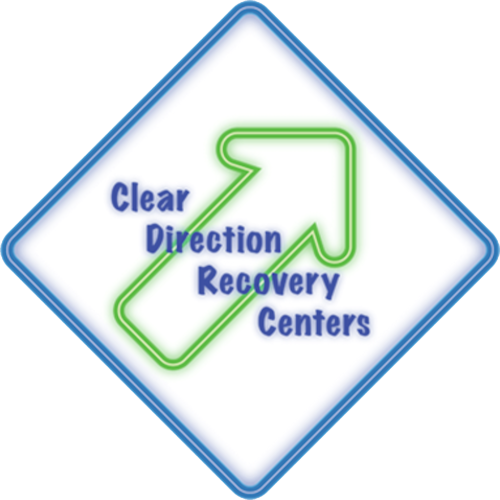Addiction recovery is a complex journey that requires comprehensive support. At Clear Direction Recovery Centers, we understand that overcoming substance use disorders involves more than just medical treatment—it requires personalized guidance, resources, and advocacy. This is where case managers play a vital role. They serve as a bridge between clients and the services they need, ensuring a smooth and structured path to long-term recovery.
Discover what a case manager does, how they support individuals in addiction recovery, and why this role is vital in the outpatient program at Clear Direction Recovery Centers in New Jersey.
What does a case manager do?
A case manager in addiction recovery is a trained professional who helps individuals navigate the challenges of treatment and reintegration into daily life. They assess each client’s unique needs, develop tailored recovery plans, and connect them with essential resources, including medical care, housing, employment assistance, and legal support. Case managers also monitor progress, advocate for clients within the healthcare system, and adjust recovery strategies as needed.
Case management is both practical and supportive, ensuring that clients have access to the tools necessary for achieving and maintaining sustained sobriety. Whether it’s coordinating with therapists, arranging transportation to appointments, or helping with insurance paperwork, case managers work behind the scenes to remove barriers to recovery. Their holistic approach addresses not just addiction but also the underlying factors that contribute to substance use, such as mental health conditions, financial instability, or family dynamics.
How do case managers support you in recovery?
Case managers play a crucial role in addiction recovery by providing structured, personalized assistance to help clients achieve long-term sobriety. Their support extends beyond clinical treatment, addressing practical, emotional, and social needs that contribute to a successful recovery journey. Below are the key ways case managers help individuals overcome addiction and rebuild their lives.
Case managers develop individualized recovery plans tailored to each client’s unique needs, strengths, and goals. They conduct thorough assessments to identify medical, psychological, and social factors that may impact recovery. By creating a structured yet flexible roadmap, they ensure clients receive the right level of care at every stage of their journey.
Case managers connect clients with essential services, including medical treatment, housing assistance, and vocational training. They streamline access to detox programs, outpatient therapy, and sober living facilities, reducing stress and confusion during recovery. This coordination ensures clients have the necessary tools to maintain stability and focus on healing.
Case managers act as strong advocates, ensuring clients receive fair and effective medical services within the healthcare and legal systems. They communicate with doctors, therapists, and insurance providers to secure appropriate care and remove barriers to recovery. Their advocacy empowers clients to navigate complex systems with confidence and dignity.
If a client experiences a relapse or emergency, case managers provide immediate support to prevent further setbacks. They help arrange emergency housing, adjust treatment plans, or connect clients with crisis counseling as needed. Their quick response helps stabilize situations and keeps recovery on track.
Case managers regularly check in with clients to assess their progress and adjust care plans as needed. They track milestones, address emerging challenges, and celebrate successes to keep clients motivated and engaged. This continuous oversight ensures that recovery remains dynamic and responsive to each individual’s evolving needs.
By offering this comprehensive support, case managers play an indispensable role in helping individuals achieve and sustain lasting recovery. Their guidance ensures that clients never have to face the challenges of addiction alone.

How is a case manager different from a recovery coach?
While both case managers and recovery coaches support individuals in addiction recovery, their roles differ significantly. A case manager focuses on coordinating practical services, such as medical care, housing, and legal aid, to ensure clients have the necessary resources for stability. They often work within clinical settings and follow structured treatment plans, serving as liaisons between clients and various social service systems. Case managers also track progress, adjust care plans as needed, and advocate for clients within healthcare and legal systems to remove barriers to recovery. Their work is crucial for establishing the external stability required for successful treatment.
A recovery coach, on the other hand, provides more personal, peer-based support, often drawing from their own lived experience with addiction. They offer motivation, accountability, and guidance in daily decision-making but typically do not handle clinical or logistical coordination. Recovery coaches focus on building life skills, fostering healthy relationships, and maintaining sobriety through one-on-one mentorship and support groups. While case managers ensure access to necessary services, recovery coaches help clients implement these resources in their daily lives, making them complementary roles in the recovery process. Together, they provide both the practical framework and personal support needed for sustainable recovery.
What’s the difference between a case manager and a therapist?
Case managers and therapists serve complementary but distinct roles in addiction treatment, working together to provide comprehensive care. A therapist specializes in mental health counseling, helping clients process trauma, develop healthy coping skills, and address underlying psychological issues that contribute to addiction. Their work is primarily clinical, using evidence-based therapies to promote emotional healing and behavioral change. Therapists provide a safe space for clients to explore their thoughts and feelings, which is crucial for addressing the root causes of substance use.
A case manager, however, focuses on the logistical and practical aspects of recovery, ensuring that clients have the necessary resources to succeed. They coordinate services such as medical care, housing assistance, vocational training, and legal support, removing barriers that could hinder progress. While therapists help clients heal internally, case managers stabilize their external environment, whether that involves arranging transportation to appointments, assisting with insurance paperwork, or connecting them with sober living facilities. This division of labor enables both professionals to maximize their expertise, creating a well-rounded support system that provides clients with both emotional guidance and practical solutions for sustainable recovery.
The collaboration between case managers and therapists is essential, as addiction recovery requires both psychological healing and real-world stability. At Clear Direction Recovery Centers in New Jersey, our integrated approach ensures clients benefit from this dual support system, addressing every aspect of their journey toward lasting sobriety.
Do case managers provide therapy?
No, case managers do not provide therapy. Their role is to facilitate access to treatment and resources rather than conduct psychotherapy sessions. However, they work closely with therapists, counselors, and medical professionals to ensure clients receive comprehensive care. If a client requires therapy, the case manager will help connect them with the appropriate mental health provider.
When creating your individualized care plan, case managers can also recommend various types of therapies that best suit your needs. For example, a case worker may recommend family therapy to help educate the loved ones of someone struggling with addiction. This can help strengthen bonds and address how addiction affects the entire family.
Furthermore, case managers can help patients determine which modality of individual therapy best suits them. For example, some may prefer Dialectical Behavior Therapy (DBT) over Cognitive Behavioral Therapy (CBT), or wish to explore more holistic recovery treatment options to supplement their care plan.
Why Is a Case Manager Essential to Recovery?

A case manager is a vital part of the addiction recovery process, as they provide the structure, resources, and personalized support necessary for long-term success. Recovery is rarely a straight path; it involves medical treatment, mental health care, social support, and practical life adjustments. Without proper guidance, many individuals struggle to navigate these complexities, leading to gaps in care or relapse. A case manager bridges these gaps by ensuring clients have access to the right services at the right time, while also advocating for their needs throughout the process.
One of the biggest challenges in recovery is coordinating multiple aspects of care, from medical detox to therapy and aftercare. Case managers streamline this process by working with doctors, therapists, social workers, and community organizations to create a seamless treatment plan. They also help with real-world obstacles, such as securing stable housing, finding employment, or resolving legal issues—all of which can derail progress if left unaddressed. By addressing these logistical challenges, case managers enable clients to focus on their healing rather than navigating bureaucratic hurdles.
Additionally, case managers provide crucial accountability and encouragement. They monitor progress, identify potential setbacks early, and adjust strategies to keep recovery on track. Their ongoing support helps clients stay motivated, build confidence, and develop the skills needed for a substance-free life. In short, a case manager doesn’t just assist with recovery; they help make it sustainable. At Clear Direction Recovery Centers in New Jersey, our case managers are dedicated to ensuring that no one faces addiction alone, providing the expert guidance necessary for genuine, lasting change.
Case Management at Clear Direction Recovery Centers in New Jersey
At Clear Direction Recovery Centers, our case management services are designed to provide seamless, client-centered support. We believe that recovery extends beyond the clinical setting, which is why our case managers assist with every aspect of a client’s journey—from initial assessment to aftercare planning.
Our team collaborates with medical professionals, social workers, and community organizations to ensure clients have access to housing, vocational training, legal aid, and ongoing therapy. We also provide family support services, recognizing that a strong support system is crucial for lasting recovery. With Clear Direction Recovery Centers, clients never have to navigate the complexities of addiction treatment alone. Our case managers are dedicated to removing obstacles, offering guidance, and empowering individuals to build healthier, substance-free lives.
If you or a loved one is seeking structured, compassionate support in recovery, contact Clear Direction Recovery Centers today to learn how our case management services can help.


